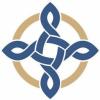Clinical Specialist Speech And Language Therapist (xr08)
Job Description
To take a clinical lead role in the specialist area taking responsibility for the advanced assessment, diagnosis, management and specialist treatment of complex communication and swallowing related to a wide range of conditions in the specialist area. To be an expert practitioner and utilise specialist knowledge in line with local policies/protocols and professional guidelines to manage risk and improve function. To provide specialist speech and language therapy advice to any appropriate hospital or primary health care professional. To build links with allied agencies across primary and secondary care improving local and regional care pathways across acute, outpatient and community settings.
To actively contribute to the strategic development and implementation of both the specialist SLT and wider multi-disciplinary areas. This will include taking the lead on developing and maintaining the SLT pathways and ensuring the highest possible clinical standards are met. Manage audit and quality improvement data collection, analysing, interpreting and reporting findings. Participate in research and development and teaching and support other team members participating in these activities.
Contribute to the highest standards of clinical governance and respond to and influence Trust, national and professional advanced in the specialist area. 3. JOB DIMENSIONS 3.1 Be an expert practitioner in their specialist area () and act as a senior adviser to SLTs and other professionals on professional issues related to this specialist field 3.2 Provide clinical leadership across Specialist pathways. 3.3 Provide specialist SLT input across Care Pathways for patients presenting with Swallowing and/or Communication impairment, demonstrate a high level of post graduate experience within the specialist area.
3.4 Conduct advanced clinical and diagnostic instrumental assessments 3.5 Treat and manage complex communication and swallowing impairments within the specialist area of work as part of relevant multidisciplinary teams and represent Speech and Language Therapy at multidisciplinary meetings within relevant Clinical Support Units 3.6 Identify, develop and implement strategies to improve patient care through the development and adherence to relevant LTHT policies, protocols, strategies and objectives in conjunction with departmental and Trust business plans. 3.7 Adhere to the Health and Care Professions Council Society of Royal College of Speech and Language Therapists, DOH, NICE guidelines and LTHT health and safety guidelines. 3.8 Manage own complex caseload and support and train junior SLTs and ward staff 3.9 Provide mentorship, training and supervision to students and colleagues from Speech and Language Therapy and other healthcare professionals 3.10 Provide equitable, evidence based SLT interventions 3.11 Deliver and supervise in-service training to a wide range of healthcare staff 3.5 Be a key member of relevant multidisciplinary teams providing integrated SLT care. 3.6 Show initiative in assisting/supporting other SLT teams as required 3.7 Lead and provide strategic planning and development in the delivery of clinical services 3.8 In clinical management team(s) to provide integrated SLT care, including input into business planning and service agreements 3.9 Lead in service development and quality improvement in Speech and Language Therapy 3.10 Be able to prioritise, organise, allocate, delegate and triage referrals to optimise patient care 3.11 Actively participate in the planning and delivery of staff meetings and in-service training 3.12 Provide support and advice for complex patients to SLTs and members of the multi-disciplinary team 3.13 Participate and lead at a local and regional level in the specialist area.
KNOWLEDGE, SKILLS AND EXPERIENCE REQUIRED 5.1 BSc (Hons) Clinical Language Sciences or equivalent degree accredited by RCSLT. 5.2 HCPC Registered to practice as a SLT. 5.3 Post Graduate Qualification in Dysphagia. 5.4 Post graduate specialist training to Masters level qualification 5.5 Advanced professional knowledge acquired through extensive experience of working in the field and postgraduate informal and formal education.
5.6 Extensive experience in of SLT role within Specialist area. 5.5 Complex clinical skills in the assessment, diagnosis and management of communication and swallowing impairment, which should be evidence based and updated using relevant identified means e.g. appropriate journals, courses, portfolios, professional guidelines etc. 5.6 Specialist skills in the use of instrumental assessment for assessment, diagnosis and management of dysphagia related to Specialist area 5.7 Expert knowledge of drivers, evidence base and NICE guidance for Specialist pathway 5.8 To have the skills and ability to lead audit, quality improvement and research and support other members of the team in conducting these.
5.9 Able to lead and motivate a team, demonstrate leadership, initiative, confidence, and excellent time management and organisational skills. 5.10 Excellent written, oral and interpersonal communication skills. 5.11 Be able to communicate complex medical information or gain consent when dealing with high risk and vulnerable patients. 5.12 Excellent presentation skills and experience in designing and delivering training to large multidisciplinary groups of staff or members of the public.
5.13 Be able to give comprehensive lectures to SLTs and other healthcare professions, promoting quality evidence based practice 5.14 To participate in the identification and trial of new equipment, therapy approaches and products 5.15 To provide clinical leadership to speech and language tea and act as a source of clinical expertise, providing specialist support to other clinicians and healthcare professionals both from within and outside the organisation 5.16 To be able to provide specialist knowledge for the development of local, regional and l guidelines and to use specialist knowledge to support local, regional and national organisations 5.17 Able to demonstrate knowledge of business planning 6. CORE VALUES 6.1 Comply with professional codes of practice, professional guidelines and departmental policies and procedures. 6.2 Maintain strict confidentiality in accordance with Trust policies and HPC standards. 6.3 Be compassionate and ethical in the provision of SLT care.
6.4 Demonstrate a commitment to personal and professional development. 7 CORE BEHAVIOURS AND SKILLS 7.1 Demonstrate good office practice in accordance with departmental policies and procedures. 7.2 Be a pro-active team member of the SLT department at LTHT by leading in departmental development projects, attending, participating and leading in departmental meetings and clinical updates. 7.3 Demonstrate the ability to communicate complex, specialised and sensitive information with empathy and understanding.
7.4 Demonstrate the ability to provide complex Communication and Swallowing counselling to patients requiring cognitive behavioural therapy skills and use of advanced reassurance, motivational and negotiation skills to overcome barriers to change. 7.5 Demonstrate established clinical expertise in the specialist area. 7.6 Demonstrate the ability to motivate team members to achieve individual and team objectives/goals using developed motivational and negotiation skills. 7.7 Demonstrate the ability to analyse clinical and non-clinical information to form accurate therapy care plans in a highly specialist area.
7.8 Demonstrate advanced analytical skills in prioritising the best course of SLT treatment in patients with highly complex clinical conditions, where therapeutic goals may conflict with other on-going physical, emotional, psychological and medical problems. 7.9 Ability to use a range of specialist equipment with precision and accuracy during communication and swallowing assessments, including instrumental assessment. 7.10 Demonstrate excellent time management, prioritisation and organisation skills, able to respond to unexpected challenges and pressures, and support the continuing development of these skills within the team. 7.11 Demonstrate research consciousness and implementation in practice 7.12 Demonstrate the ability to coordinate, analyse, interpret and report complex data collected through rigorous audit and service evaluation 8 CORE KNOWLEDGE AND UNDERSTANDING 8.1 To have extensive knowledge of the structure and working practices within LTHT with regard to the provision of high quality speech and language therapy to the specialist area8.2 To be able to understand and contribute to the links between teamwork, liaising within LTHT and other primary and secondary trusts.
8.3 Ability to perform highly specialised SLT assessments, interpret and plan relevant SLT care programmes for patients 8.4 Advanced knowledge of diagnosis and management of communication and swallowing problems related to specialist area and associated treatments. 8.5 Demonstrate advanced knowledge in interpretation of complex clinical information to develop, monitor and complete swallowing and communication care plans in specialised areas 8.6 Responsible for safe discharge planning. 8.7 Demonstrate the ability to evaluate practice using evidence based practice and critical appraisal. 8.8 Knowledge of business, research and project proposal and report writing 8.9 Ability to advise and suggest suitable dietary and fluid modifications to facilitate safe swallowing in a highly complex caseload.
8.10 Ability to lead and implement clinical governance, quality of care and evidence based practice in specialist areas. 8.11 Awareness of national guidance and driving factors in specialist areas. Expected Shortlisting Date 09/06/2025 Planned Interview Date 19/06/2025
MNCJobs.co.uk will not be responsible for any payment made to a third-party. All Terms of Use are applicable.
Job Detail
-
Job IdJD3151731
-
IndustryNot mentioned
-
Total Positions1
-
Job Type:Full Time
-
Salary:Not mentioned
-
Employment StatusPermanent
-
Job LocationLeeds, ENG, GB, United Kingdom
-
EducationNot mentioned


